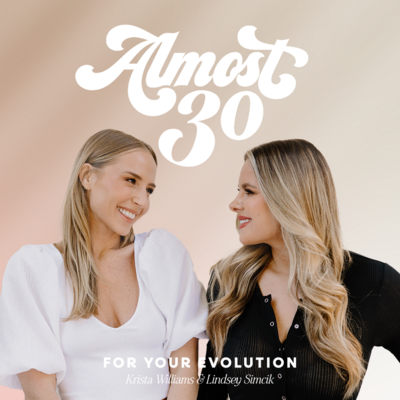(WEST HOLLYWOOD, Calif.) — The boundaries between conventional news organizations and emerging digital platforms are becoming increasingly vague in the constantly evolving field of modern journalism. In this context, the Almost 30 podcast shines as a symbol of innovation amidst the vast ocean of audio-driven content. However, as its impact expands, a natural inquiry arises: Can this podcast, which seamlessly blends personal stories with impactful subjects, be considered authentic journalism? Enter the realm of Almost 30, and together, let’s analyze its position within contemporary journalism.
Almost 30 is a versatile health and wellness platform that includes a podcast, blog, and a second podcast, called Morning Microdose. It covers a wide range of topics, from entrepreneurship and social justice issues to self-development, and even explores the possibility of extraterrestrial existence. Krista Williams and Lindsey Simcik, the hosts of Almost 30, offer fresh perspectives on mainstream narratives and advocate unique approaches to spiritual growth.
Now, you might wonder if there are other podcasts that offer more valuable information. The answer is subjective, as preferences vary among audiences. What makes Almost 30 unique is its devoted following—a legion of fans who are drawn to its unconventional approach to audio journalism and storytelling. With over 600 episodes and more than 100 million downloads, it has garnered considerable popularity.
While numbers benefit any production, especially a podcast, what makes Almost 30 unique is the personal touch they share with their audience. Williams and Simcik candidly divulge their personal relationship experiences, the obstacles they’ve encountered, and their development journeys. This fosters a sense of empathy and community among the audience. For example, in episode 540, “How to Thrive as an Empath: Understand The Shadow Side and Your Gifts,” Williams has a solo episode discussing what it means to be an empath. Throughout the episode, Williams shares her experience of deeply caring for everything and everyone, but to navigate not losing sight of herself.
Williams says, “We’re so tuned into other people’s feelings that we can lose sight of our own needs and desires.” So in this specific case, Williams, being an empath, describes being vulnerable and sharing a common experience the audience may relate to and not feel alone.
Focusing back on their journalistic approaches is the regular presence of expert guests on the show. Many of these guests are experts in fields such as psychology, entrepreneurship, astrology, and personal development. These guests furnish valuable insights and actionable advice, affording listeners an opportunity to tap into expertise they may not have otherwise accessed.
Take, for example, an expert guest, Jessie Inchauspé, who is also called the ‘Glucose Goddess,’ a biochemist with a compelling message for the world about the benefits of clean eating. In the episode, she unpacks with Williams and Simcik the science of cravings, skin health and hormones, healthy blood sugar ranges, lifestyle factors, and why glucose levels are important – even if you’re not diabetic.
Almost 30s commitment to journalistic integrity is evident in its practice of analyzing its guests’ research and findings on the podcast. In this case, we’ll use the Glucose Goddess example again. They provide hyperlinked references to their guests’ research in each episode description but also engage in open conversations with the experts to discuss their findings. This dedication to thoroughness and education distinguishes Almost 30 as a reliable source of information.
As times are changing, so is the definition of journalism. The term journalism is becoming more challenging to define, and with the emergence of podcasting, the line is blurred for many. I believe podcasting, though known to be a digital medium, is now a form of journalism. Podcasts like Almost 30 are now providing deeper coverage and conversations about topics that can be researched and becoming quite similar in the way newsrooms would function.
Almost 30 have the same commitments as a newsroom would, for example, fact-checking information, researching about topics, and interviewing experts on said topics. Almost 30 are paving their way into the health and wellness realm within podcast journalism and with their inclusion of topics with expert guests, and promoting further research to their audience, they have the capacity to say they are producing newsworthy journalism too.


